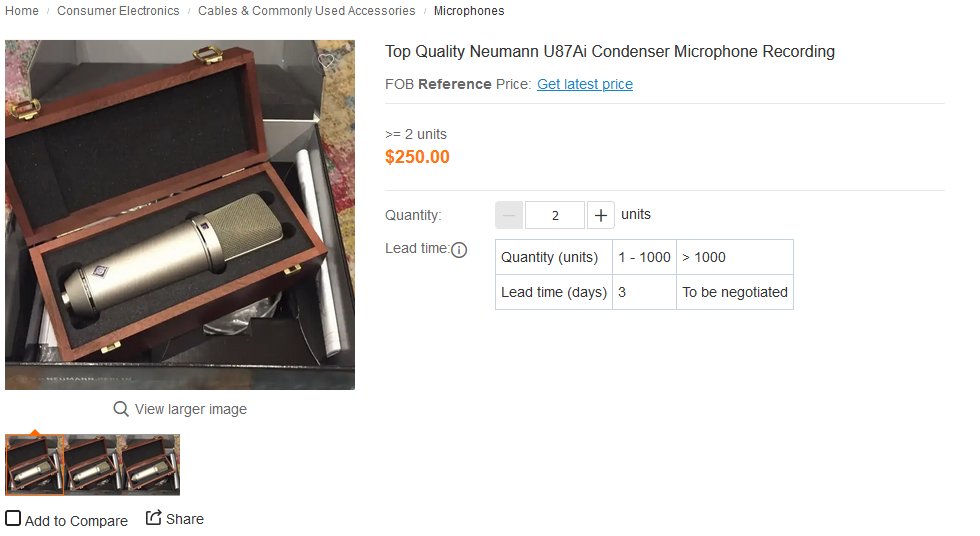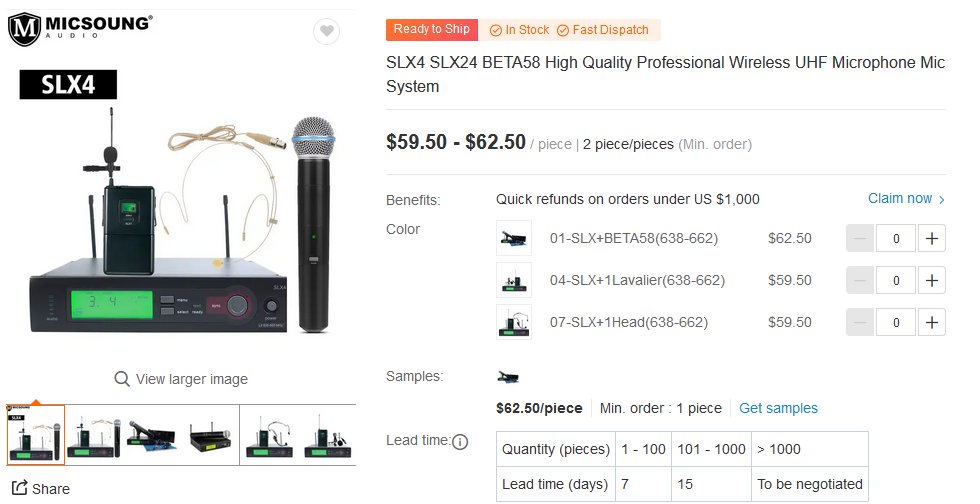Product copying of major brand audio equipment in China is now a sad reflection of global challenges. In recent years, the copying and replication of major brand audio equipment by Chinese manufacturers has attracted worldwide attention and also a great deal of anger. This practice, also known as “cloning,” has drawn both highly critical and sympathetic eyeballs. For while some see it as an infringement of intellectual property and a sign of a lack of innovation, others see it as an alternative way to acquire supposedly high-quality products at more affordable prices. Wrongly so.
China, known as the “workbench of the world,” has a long history of producing and, unfortunately, duplicating various goods. In the field of audio equipment, the situation is no different. From high-end headphones and microphones to amplifiers and DACs, there’s hardly a product that isn’t made and, unfortunately, copied in China in some way. These cloned products are aimed at different customer segments. For some, they are an affordable alternative to more expensive branded products, while for others they are collector’s items that can be placed alongside their originals. It should be noted, however, that these clones are usually much cheaper and thus the quality can often be (and almost always is) significantly lower. There is then also the teardown on page 2 as exemplary proof for this.

A particularly repulsive example, for example, is the coveted U87Ai from Neumann, which can be had for less than a tenth of the normal price. Here, both the presentation and packaging, as well as the product itself, are imitated down to the last detail. An inexperienced buyer will not be able to tell the difference visually, and not everyone can hear the difference. We will see in a moment how the “inner values” can only be recognized by opening and disassembling such a clone.
But it also goes one step deeper. Another victim is Shure, where extremely many products are copied quite brazenly, be it podcast microphones or the well-known SLX4, where you get a neckband or lavalier microphone “as a gift” in the kit. The popular AT2020 from Audio Technica is also available on AliExpress in bulk quantities, although the price difference to the original is much smaller. The SLX4 is certainly imported in larger quantities. Often you see such products as “used as new, without invoice but OVP” as a “private sale” on eBay for half the original price. Clever solution, because this way you can also explain the low price and exclude possible complaints.
Legal issues
The practice of cloning raises numerous legal and ethical questions. One is the problem of intellectual property and patent infringement. Many companies invest significant resources in research and development to bring innovative products to market. If these products are then copied without the original manufacturers receiving financial compensation, this can be perceived as unfair. On the other hand, proponents of cloning argue that it helps make products more accessible to consumers.
They argue that many of the more expensive brand-name products are prohibitively expensive for the average consumer, and that these plagiarized products merely help to serve a group of buyers who would never have been relevant as customers anyway. In which case there would be no loss. Apart from the fact that such arguments are not valid, the import of such products is also forbidden and often even loss-making for the private buyer, because recognizable counterfeits (and be it via the price) are immediately removed from circulation by customs.
In recent years, however, the Chinese government has made only a very half-hearted attempt to tackle the problem of product copies. It has introduced laws to protect intellectual property and to punish infringements more severely, but enforcement of these laws remains a challenge. After all, where there are no lawsuits, there is nothing to be gained. It is unclear how the market for cloned audio devices in China will develop in the future. While some point out that increasing intellectual property enforcement and the pursuit of self-innovation could spell the end of the cloning practice, others argue that the need for affordable products from big brands will continue to be a driving force. So where profit can be made, the practice will be hard to contain without stately regulations.
That almost all products are not worth the money is certainly beyond question. We’ll see in a moment with the DT770 Pro from Beyerdynamic what kind of technical waste you can get for far too much money. Please turn the page!



































76 Antworten
Kommentar
Lade neue Kommentare
Mitglied
Urgestein
Urgestein
Urgestein
1
Urgestein
Urgestein
1
Urgestein
Urgestein
1
Urgestein
Veteran
Urgestein
Urgestein
1
Urgestein
Urgestein
Mitglied
Alle Kommentare lesen unter igor´sLAB Community →